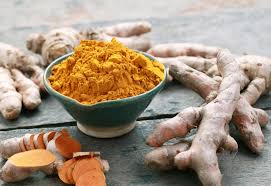Turmeric is an ancient spice that has been used for centuries for its various health benefits. In recent years, its active ingredient, curcumin, has been studied for its potential to treat a variety of ailments and diseases. While the research is still in its early stages, many people are wondering how much curcumin they should be taking in order to maximize their health benefits. In this blog post, we’ll be exploring the question of turmeric dosage and how to get the most out of your curcumin supplement. We’ll look at the recommended daily dosage and discuss how it may vary depending on individual needs.
What is turmeric and what are its benefits?
Turmeric is a popular spice with many medicinal properties. It has been used in traditional medicine for centuries to treat various ailments, including digestive issues and skin conditions.
Turmeric is made from the root of the plant, which contains a compound called curcumin. This compound is believed to be responsible for the many health benefits associated with turmeric. Studies have shown that curcumin has anti-inflammatory, antioxidant, and neuroprotective properties. It can also help reduce the risk of heart disease and even some types of cancer.
Turmeric has been found to be helpful in treating a range of conditions, from arthritis to depression. It may also boost immunity, reduce blood sugar levels, improve liver function, and promote brain health. In addition, turmeric may help protect against Alzheimer’s disease and other age-related cognitive decline.
However, it is important to note that taking too much turmeric can have side effects. Therefore, it is important to understand the recommended turmeric dosage before supplementing your diet with this spice.
How much curcumin should you take per day in order to maximize health benefits?
When it comes to turmeric, the amount of curcumin you should take per day to maximize health benefits can be a bit confusing. After all, there are many different types and brands of turmeric supplements on the market, and the amount of curcumin in each can vary drastically.
Fortunately, there is some general guidance that can help you decide how much curcumin to take. Research suggests that the optimal dosage range for curcumin is between 500 and 2,000 milligrams per day. However, it’s important to keep in mind that different individuals may respond differently to this dosage. As such, it’s recommended that you start with a lower dose and work your way up as needed.
It’s also important to note that curcumin is best absorbed when taken with black pepper extract (piperine). A dosage of 10-20 milligrams of piperine per day can help increase curcumin absorption by as much as 2,000%. Therefore, if you are taking a turmeric supplement, it’s recommended that you take it with a small amount of black pepper extract for optimal results.
Finally, when taking turmeric or curcumin supplements, be sure to choose a high-quality product with minimal additives and fillers. This will ensure that you are getting the most benefit from your supplement.
Overall, the amount of curcumin you should take per day depends on individual needs and preferences. However, by following the general guidelines outlined above and choosing a quality supplement, you can ensure that you are taking the correct dosage to maximize the health benefits of turmeric.
Are there any side effects associated with taking too much curcumin?
While many people have been taking turmeric supplements for centuries, there is still much to learn about curcumin and its potential side effects. While there has not been extensive research on the effects of taking too much curcumin, there are some potential side effects that you should be aware of.
High doses of curcumin can result in nausea, diarrhea, and stomach upset. In addition, high doses of curcumin can interact with certain medications such as antiplatelets, anticoagulants, diabetes drugs, and other medications. If you are taking any medication, it is best to talk to your doctor before taking any type of supplement.
In addition, if you are pregnant or breastfeeding, it is best to avoid taking high doses of curcumin as it may have negative effects on your baby. It is also important to note that curcumin may interact with certain conditions such as gallstones, kidney stones, and bile duct obstruction.
Overall, it is best to take the recommended dosage of curcumin to ensure that you are getting the most out of its health benefits without suffering any side effects. If you plan to take higher doses, it is best to consult with your doctor first.
How can you incorporate more turmeric into your diet?
If you’re looking to add more turmeric into your diet, there are a few ways to do it. Firstly, you can purchase the root fresh, or buy it dried and ground in powder form. If you’re using fresh turmeric, make sure to peel the root before chopping or grating it.
One of the most popular ways to incorporate more turmeric into your diet is to add it to your favorite recipes. Turmeric goes well with many dishes and adds a great flavor and bright yellow color. Try adding it to curry dishes, stir-fries, soups, stews, smoothies, marinades, and even baked goods.
Another way to get more turmeric into your diet is to use it as a herbal supplement. Many supplements contain curcumin, which is the main active ingredient in turmeric. Curcumin has many health benefits and is thought to be the most beneficial component of turmeric. When taking turmeric in supplement form, it’s important to take the recommended dosage on the bottle.
You can also drink turmeric tea or mix turmeric with other spices to create a healing tonic. Simply mix together equal parts of ground turmeric, ginger powder, cumin, cinnamon and black pepper and store in an airtight container. To make the tonic, mix one teaspoon of this spice blend with eight ounces of hot water. Stir it well and enjoy!
Finally, don’t forget that you can always purchase pre-made products containing turmeric such as spice blends, teas, and supplements. Whatever way you choose to incorporate more turmeric into your diet, just remember to follow the recommended dosages for optimal results.



